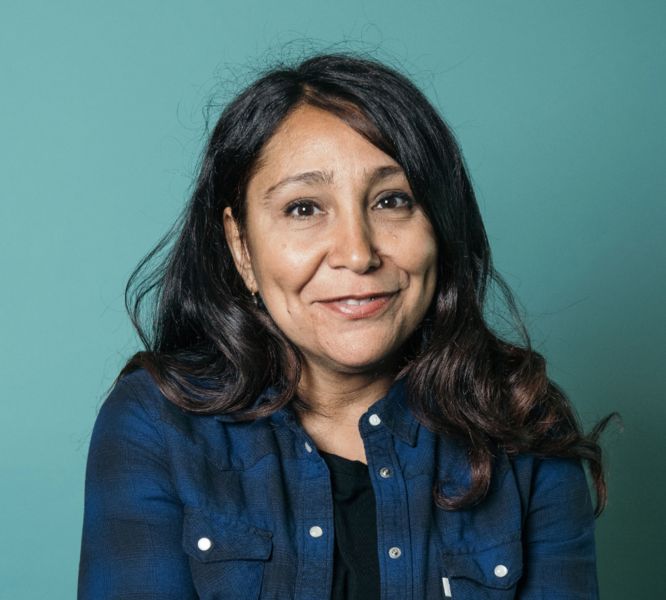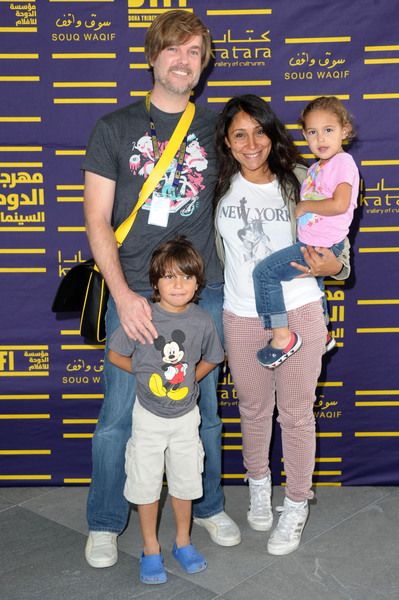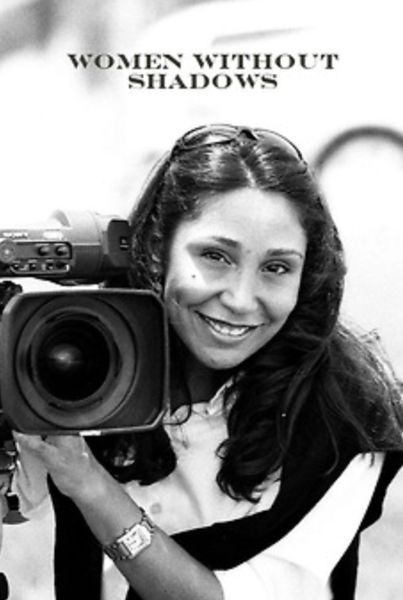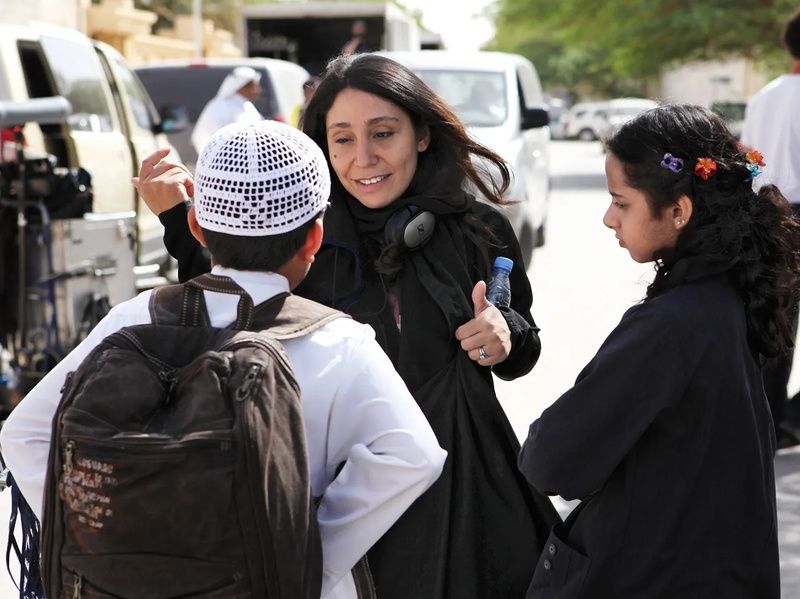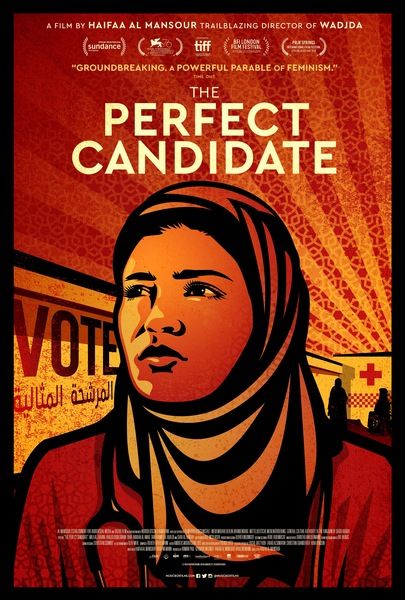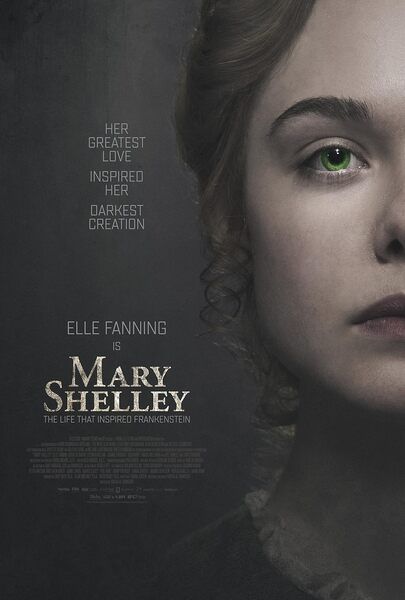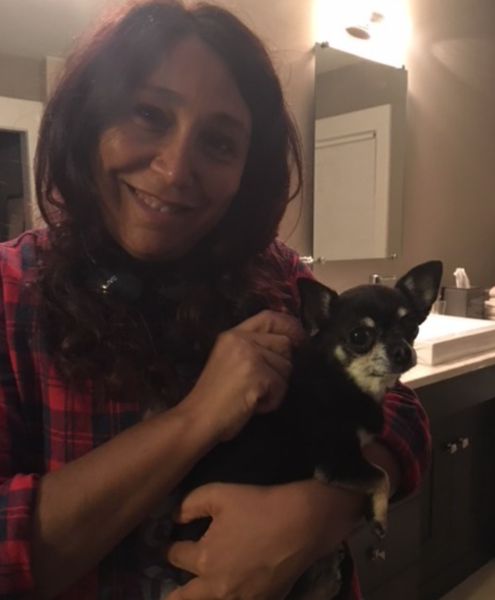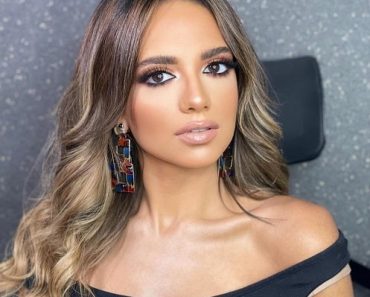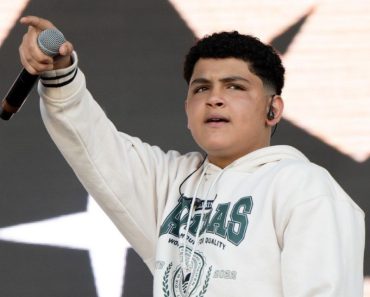| Bio/Wiki | |
|---|---|
| Profession | Filmmaker |
| Physical Stats | |
| Height (approx.) | 5' 5" (165 cm) |
| Eye Colour | Dark Brown |
| Hair Colour | Black |
| Career | |
| Debut | Feature Film: 'Wadjda' (2012)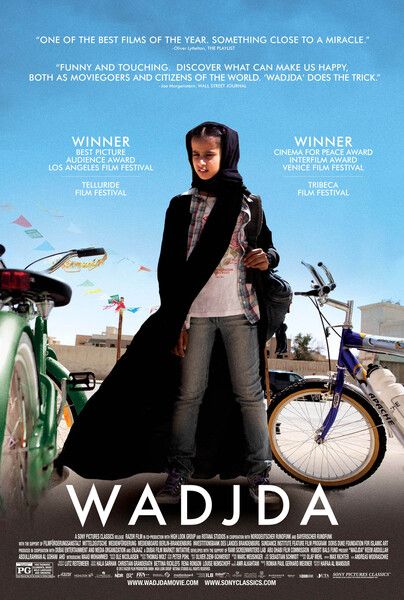 |
| Awards | • 2014- British Academy of Film and Television Arts (BAFTA) Award for Best Film Not in the English Language for 'Wadjda' • 2015- Sundance Film Festival Global Filmmaking Award |
| Personal Life | |
| Date of Birth | 10 August 1974 (Saturday) |
| Age (as of 2024) | 50 Years |
| Birthplace | Al Zulfi, Riyadh, Saudi Arabia |
| Zodiac sign | Leo |
| Nationality | Saudi |
| Hometown | Al Hassa |
| College/University | • The American University in Cairo • University of Sydney, Australia |
| Educational Qualification(s) | • Bachelor's degree in Comparative Literature from the American University in Cairo • Master's degree in Film Studies from the University of Sydney, Australia |
| Religion | Islam |
| Social Media | • Instagram |
| Relationships & More | |
| Marital Status | Married |
| Marriage Date | Year, 2007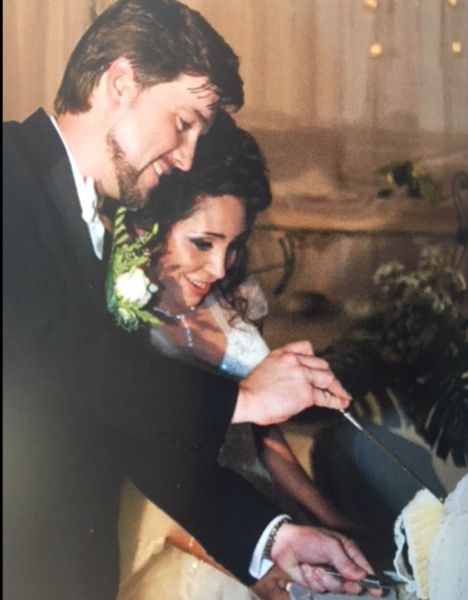 |
| Family | |
| Husband/Spouse | Bradley Niemann (Diplomat)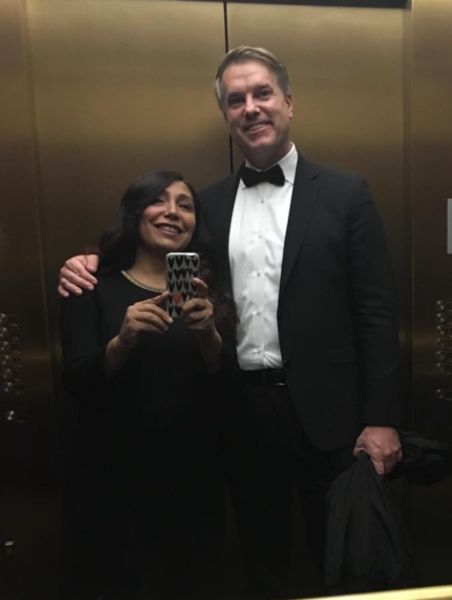 |
| Children | Son- Adam Daughter- Haylie 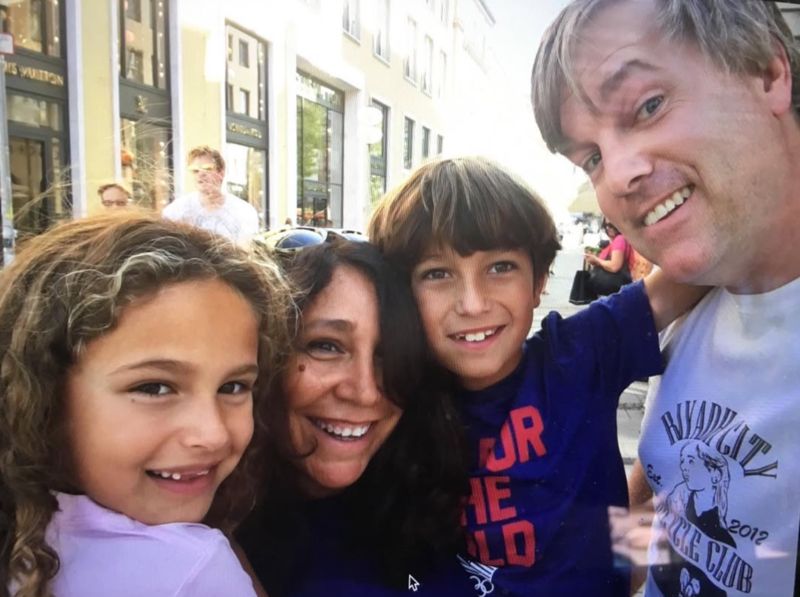 |
| Parents | Father- Abdul Rahman Mansour (Deceased) (Poet, Lawyer, Legal Consultant) Mother- (Social Worker, Entrepreneur) 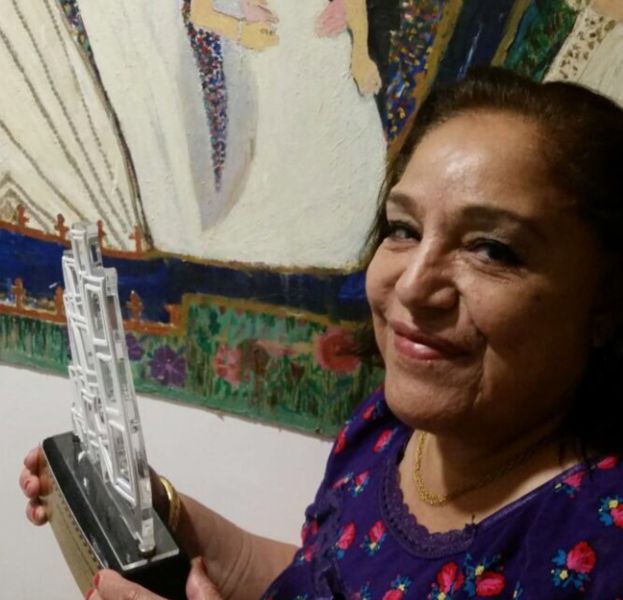 |
| Siblings | She has 11 siblings |
| Favourites | |
| Actor | Jackie Chan |
Some Lesser Known Facts About Haifaa al-Mansour
- Haifaa al-Mansour’s father, Abdul Rahman Mansour, who was a poet, was the one who introduced her to films by video, as there were no movie theatres in Saudi Arabia between the period of 1983 and 2018.
- Haifaa’s hometown, Al-Hasa, was conservative, which is why her father used to go to a Blockbuster and grab any films that were available at that time and bring them back home for their large family to enjoy together.
- Her father, who was a poet, raised his 12 kids on Jackie Chan, Bruce Lee, and Disney movies. Talking about the whole experience, Haifaa al-Mansour was quoted as saying in an interview that
We had access to books, and films, and songs, and things that were considered corrupt at that time. So we were always outsiders somehow. We had lots of relatives in that small town, but we didn’t feel like we fit in.”
- When cinema was banned in Saudi Arabia, Haifaa and her family received lots of criticism and threats from the people in her conservative hometown, but the criticism never stopped her father from raising her and the other children to do things they had immense passion about.
- Haifaa al-Mansour grew up in a liberal family with non-traditional parents. However, her mother still had expectations for Haifaa to have a respected career.
- When she was studying in school, her school required the girls to perform plays on subjects like prayer and appropriate dress. Haifaa al-Mansour denied performing and instead volunteered to write and direct them. She was quoted as saying that
I used to write little plays. In middle school, we would have competitions. Every morning, each class would come up and perform a sketch. I thought about contemporary life in Saudi and tried to write about how we kids, actually were. The plays became really popular. That was perhaps my first encounter directing actors and writing stories.”
- Her mother wanted her to become a doctor, but that did not work out for Haifaa. She also tried becoming an engineer, but that also did not happen.
- Haifaa al-Mansour’s father was the one who encouraged her to go forward and study comparative literature at the American University in Cairo.
- After finishing her graduation at the American University in Cairo, Haifaa started working at an oil company and also taught English.
- When Al-Mansour came back to Saudi Arabia after studying in Cairo, she started making films as a hobby to feel better after college. She began making three short films, employing her siblings as her actors and crew.
- In 2005, she released a documentary titled ‘Women Without Shadows,’ which was all about progressive Saudi women. After the release, Haifaa started receiving terrifying death threats, but that did not stop her from pursuing her passion for filmmaking.
- Haifaa al-Mansour met her husband, Bradley Niemann, in 2005 at the State Department of the US Embassy during the screening of the documentary ‘Women Without Shadows.’ Bradley was working as a cultural attaché in the department at that time.
- After some time, she enrolled for her master’s degree at the University of Sydney, Australia.
- Haifaa al-Mansour is the first female Saudi filmmaker.
- After shooting her first short film titled ‘Who?’, she had to email the entire short film to her friends and relatives for approval.
- She is well known for breaking the silence about how Saudi women live and giving them a chance to share their stories. Her work focuses on helping Arab women and making their lives better.
- Her Saudi Arabian feature drama film titled ‘Wadjda’ was the first feature film shot entirely in Saudi Arabia, and as of 2013, it was the only feature-length film made in Saudi Arabia by a female director.
- For her feature film titled ‘Wadjda,’ it took five years for Haifaa al-Mansour to finish it because of the numerous constraints and challenges Haifaa went through to have the film released.
- As men and women were kept separate in Saudi Arabia, she had to direct the whole film from a small van, using just a screen to watch and a walkie-talkie to give instructions.
- Haifaa al-Mansour stated in one of her interviews that it was a very difficult and frustrating experience for her to make her feature film ‘Wadjda,’ but the most important thing to her was that she was the first female Saudi Arabian filmmaker to create the first feature film, which was fully filmed in Saudi Arabia.
- Haifaa’s ‘Wadjda’ was selected as the Saudi Arabian entry for the Best Foreign Language Film at the 86th Academy Awards. It was the first time Saudi Arabia had submitted a film for the Best Foreign Language Oscar.
- Her fourth feature film, titled ‘The Perfect Candidate’ in 2019, was the first feature film to be supported by the newly established national Saudi Film Council.
- Haifaa al-Mansour’s family always supported her, but people around her were very strict and said making films was ‘haram’ (forbidden in Islam), though most Muslims don’t agree with the claim. Still, she kept making movies about women who wanted to change how women are seen and treated in Saudi Arabia.
- She also stated in one of her interviews that it was hard to find money for the making of her feature film ‘Wadjda’ in the Middle East because people didn’t believe in a film like this.
- She ultimately paired with a German production company and received additional funding from Prince Al-Waleed bin Talal, who is a Saudi billionaire, as he is known for his efforts to empower women.
- In 2015, Haifaa al-Mansour was selected to be on the jury for the Un Certain Regard section of the 2015 Cannes Film Festival.
- In 2017, Haifaa directed the romantic period-drama film titled ‘Mary Shelley,’ which was based on the early life of the English novelist Mary Shelley.
- After completing her Master’s degree in Australia, Haifaa, along with her husband, Bradley Niemann, and their two kids, moved to Bahrain and stayed there for a few years until her husband was posted to the US embassy in Los Angeles. After he husband’s posting, Haifaa and her kids and husband moved to Los Angeles, California.
- In 2019, Haifaa directed the fifth episode titled ‘Putting on the Clothes’ in the American mystery teen drama television series titled ‘The Society,’ which was released on Netflix.
- In 2020, she directed the fifth episode titled ‘Hiving the Bees’ in the American historical drama television miniseries titled ‘The Good Lord Bird,’ which was based on the 2013 novel of the same name by James McBride. The TV series premiered on Showtime.
- Haifaa always looked up to her mother and was quoted as saying in an interview that
When we were kids, she didn’t cover completely. She was always challenging the situation. I think she’s my idol.”
- At her wedding, Haifaa al-Mansour drove a golf cart to her wedding as women still didn’t have driving rights in Saudi Arabia at that time.
- Haifaa al-Mansour has directed episodes in many American TV series, and some of them include ‘Motherland: Fort Salem’ (2020), ‘The L Word: Generation Q’ (2021), ‘Tales of the Walking Dead’ (2022), ‘City on Fire’ (2023), and ‘Fear the Walking Dead’ (2023).
- Haifaa al-Mansour has directed many short films, and some of them are ‘The Bitter Journey’ (2000), ‘The Only Way Out’ (2001), and ‘The Wedding Singer’s Daughter’ (2018).
- She loves spending time with animals and often shares photos with dogs on social media.
I’m a passionate content writer with a flair for storytelling and a strong command of language. With experience in writing across various niches, from lifestyle and entertainment to professional biographies and brand narratives. I create engaging, well-researched content that connects with readers. My writing style balances clarity with creativity, and I enjoy crafting pieces that inform, inspire, and leave an impact.

